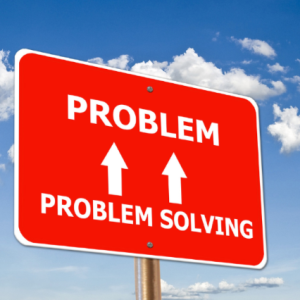 We have had many discussions with clients this year on this topic as political uncertainty has driven market uncertainty. When faced with a challenge, the way we manage uncertainty can determine whether the situation improves or spirals further out of control. Too often, we confuse reacting with responding—but these are two vastly different approaches. Understanding the difference can help leaders, teams, and individuals make better decisions under pressure.
We have had many discussions with clients this year on this topic as political uncertainty has driven market uncertainty. When faced with a challenge, the way we manage uncertainty can determine whether the situation improves or spirals further out of control. Too often, we confuse reacting with responding—but these are two vastly different approaches. Understanding the difference can help leaders, teams, and individuals make better decisions under pressure.
Reacting is often immediate, emotional, and unfiltered.
- It is the instinctive “fight, flight, or freeze” impulse.
- The brain seeks to resolve discomfort quickly, sometimes at the expense of clarity.
- Reactions may come from stress, fear, or anger rather than logic.
For example, if a client sends a critical email, a reaction might be firing back defensively without considering the bigger picture. The issue might escalate instead of being resolved.
Responding is deliberate, thoughtful, and controlled.
- It allows space to pause, process, and evaluate options.
- Responses are guided by long-term goals and values, not just short-term relief.
- The intent is to solve the problem, not just to discharge emotion.
In the client example, a response might mean taking time to understand the concern, gathering the facts, and then replying with a professional, solution-oriented message.
Why the Difference Matters
- Quality of Outcomes
- Reactions may address symptoms, while responses address the root cause.
- Relationships and Reputation
- A reaction can damage trust, while a response builds credibility and shows maturity.
- Stress Management
- Reacting amplifies stress; responding manages it.
How to Shift from Reacting to Responding
- Pause Before Acting – Count to ten, breathe deeply, or step away if needed.
- Seek Perspective – Ask yourself, what is really happening? What outcome do I want?
- Check Emotions – Recognize the feelings, but do not let them dictate the decision.
- Consider Options – Think through consequences before choosing your next step.
- Act with Intention – Align your response with your values and goals.
Problems are inevitable—but the difference between escalating them or resolving them lies in how we approach them. A reaction may feel satisfying at the moment, but a response creates lasting results. In business, leadership, and life, the most effective problem-solvers are not the fastest to act, but the most thoughtful in their approach.
C Squared Solutions provides interim or fractional CFOs, COOs, and CEO leaders in nearly all industries. We analyze and advise on these issues frequently through sophisticated modeling and experienced management. Give us a call or visit our website for more information and details. We have been there and done that!


